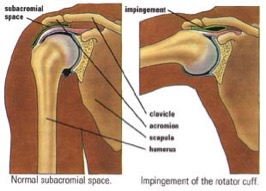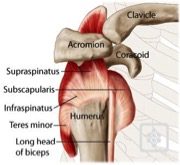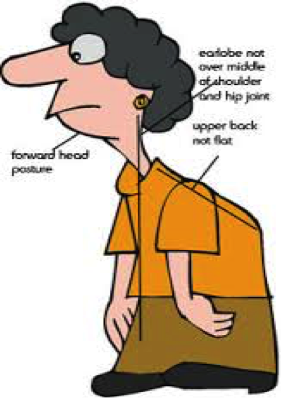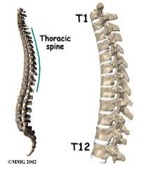
Swimmer’s Shoulder: How To Prevent The Pain
Swimming is a popular activity for both recreational purposes and athletic endeavors. It provides a great cardiovascular and “full” body workout in a pleasantly buoyant environment. Unfortunately, as with any form of exercise, some participants can experience pain and discomfort. Pain in the shoulder is the most common complaint among swimmers. This pain is typically in the front of the shoulder and can be felt when the arm is lifted overhead.
Shoulders Are Key Spots For Injury
Swimmer’s shoulder can be due to a condition called shoulder impingement. Impingement occurs when we have a tendon (part of a muscle) get compressed against a bone. In swimming, this can occur during different phases of the swim stroke.
Normally, the tendons of the shoulder glide easily between two bones when a person lifts his or her arm overhead. In the case of swimmer’s shoulder, the tendons can become pinched which causes pain.
Factors That Throw Your Shoulder Off-Balance
So what causes shoulder impingement? Here are some potential contributors:
1. Muscle Weakness
The rotator cuff muscles are supposed to pull the arm bone (humerus) down so it can clear freely underneath the top of the shoulder when a swimmer lifts his or her arm overhead. If those muscles are weak or get fatigued from swimming long sets, they can’t do their primary job of controlling the humerus and impingement can occur. The muscles of the trunk and those surrounding the shoulder blade (scapula) provide a stable base for the shoulder to move effectively. If those muscles become weak or do not function normally, the shoulder can be at risk for impingement.
From this side view, we see the limited space the supraspinatus and biceps tendons have to clear underneath part of the scapula during arm movements.
2. Muscle Imbalances
The muscles in the front of a swimmer’s chest become strong during the pulling phase of swimming. On the contrary, the muscles of a swimmer’s upper back may become stretched and weak. That muscle imbalance can cause our shoulder to move forward in position and lead to poor alignment causing pain with overhead movements. Another sign of muscle imbalance is a forward head posture.
Poor posture affects the position of the shoulder and limits the space it has to move.
3. Poor Spinal Mobility
An adequate amount of movement in the bones of a swimmer’s neck and thoracic spine (the middle section of the spinal column) is necessary to move successfully through the water.
If there is a limitation in a swimmer’s spine, the shoulder may become more mobile to make up for the loss of motion. This increase in shoulder joint mobility can lead to impingement.
4. Faulty Swimming Body Mechanics
Poor swimming technique can contribute to the aforementioned problems. Breathing to just one side, poor body rolling, and significant increases in training volume can all lead to faulty body mechanics and result in shoulder problems.
How Do We Fix Impingement?
The first step in properly diagnosing and treating shoulder pain is to schedule an evaluation with a physical therapist. He or she will assess the causes of the shoulder impingement and implement appropriate treatments to decrease pain and improve function.
Appropriate exercises to improve rotator cuff strength are necessary to address weaknesses. In addition, the muscles of the trunk and those surrounding the shoulder will likely need strengthening and stability exercises. For stiff spinal joints, the physical therapist will provide joint manipulations to improve range of motion. Tight musculature can be addressed with soft tissue mobilization, dry needling, and passive stretching. Discussing strategies to improve shoulder position in the water during swimming will also help assist in the reduction of pain and prevention of future injury.
Jessica Hernandez, PT, DPT, MTC, CSCS is a Doctor of Physical Therapy working at Therapydia Nola in Metairie, LA. She competes regularly in triathlons and is a 2x Ironman 70.3 finisher. You can read her complete bio at therapydianola.com.
Shoulder Injury, Shoulder Overuse, Shoulder Pain, Shoulder Triathlon, Swimmer's Shoulder, Swimming Injury, Triathlon Swimming, Triathlon Swimming Pain




